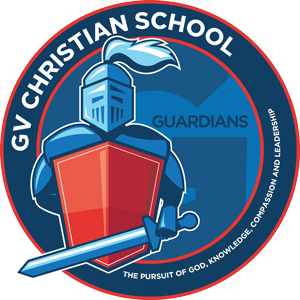Science



Earth & Space Science
Space science (or astronomy) is the study of celestial objects (such as moons, planets, stars, nebulae, and galaxies). Earth science is a sub-field of space science, focusing on the planet Earth. These two sciences are holistic, using tools from physics, chemistry, and mathematics. Earth science is unique in that Earth is the only known planet with life; its study therefore also includes biology. This year-long course is hands-on, with a brief introduction to each Earth or space science-related concept being kinetically learned in a laboratory setting following the scientific method.
Students will complete the following three modules from FOSS Next Generation-Full Option Science System:
Earth History: Students read evidence from rock, landforms, and fossils to tell the geological story of a place. Students grapple with Earth’s processes and systems that have operated over geological time, coming to understand the rock cycle, human interactions with natural resources, and the technology that supports the geosciences.
Planetary Science: Students develop a thorough understanding of the local cosmos; they will apply knowledge of Earth’s tilt and the revolution of Earth around the Sun to explain daylight and seasons. Students will study the surface features of the Moon, analyze data to identify the pattern of Moon phases, and then develop a physical model that can explain Moon phases.
Chemical Interactions: Students conduct experiments to observe macroscopic matter transformations and apply kinetic particle theory to explain those transformations at the microscopic level. They also observe energy transfers associated with reactions and infer energy transfers associated with phase change.
Life Science
Life science is the study of life and living organisms, including their structure, function, growth, distribution, and taxonomy. Life science is by nature less kinetic than other sciences (like physics or chemistry); most life scientific study is observational. Nevertheless, laboratory study will still make up the majority of this course of study. Furthermore, as part of the student's Christian education, special attention will be paid to the areas of evolution and creationism, as well as the debate surrounding them.
Students will complete the following four modules from FOSS Next Generation-Full Option Science System:
Heredity and Adaptation: Students explore evidence, including the fossil record, the similarities between past and present organisms, and the genetic principles of inheritance.
Populations and Ecosystems: Students learn that every organism has a role to play in its ecosystem. To understand how ecosystems work and what they need to remain healthy, students explore how changes to one part of the ecosystem affect others.
Electromagnetic Force: Students will measure the force of invisible magnetic fields, learn to build a circuit, design an electromagnet, and explain the energy transfers that make it all possible.
Gravity and Kinetic Energy: Students explore speed, acceleration, gravity, and collision physics through investigative study and analysis.
Biology Honors
Biology is the study of life and living organisms, including their structure, function, growth, distribution, and taxonomy. Biology is by nature less kinetic than other sciences (like physics or chemistry); most biological study is observational. Nevertheless, laboratory study will still make up the majority of this course of study. Furthermore, as part of the student's Christian education, special attention will be paid to humanity's role as stewards of the natural world.
Chemistry Honors
Chemistry is the study of the composition, properties, and behavior of matter. The primary concern of chemistry is atoms and their interactions with other atoms, with particular focus on the properties of the chemical bonds formed. This year-long course is hands-on, with a brief introduction to each chemistry-related concept being kinetically learned in a laboratory setting following the scientific method.
Physics Honors
Physics is the natural science that studies matter and its motion through space and time, along with the related concepts of energy and force. More broadly, it is the general analysis of nature, conducted in order to understand how the universe behaves. This year-long course is hands-on, with a brief introduction to each physics concept being kinetically learned in a laboratory setting following the scientific method.
AP® Physics 1
AP® Physics 1 is an algebra-based, introductory college-level physics course. Students cultivate their understanding of physics through inquiry-based investigations as they explore these topics: kinematics, dynamics, circular motion and gravitation, energy, momentum, simple harmonic motion, torque, and rotational motion. Students will practice reasoning skills used by physicists by discussing and debating, with peers, the physical phenomena investigated in class, as well as by designing and conducting inquiry-based laboratory investigations to solve problems through first-hand observations, data collection, analysis, and interpretation.
Health
Students will learn about physical, mental/emotional, social, and spiritual health. All of these are important in order for students to grow into well-rounded individuals. There will be projects throughout the year to reinforce the concepts learned in class.
